There was melancholy in the air, wafting around with the dust and debris. The bright sun rays outside transformed into a weakened imitation of itself as it passed through the translucent windows in the room. The rooms were dark and occupied with messy boxes filled with memorabilia, clothes, and knick-knacks. My late grandparents’ home, their final living memory – was going to be sold.
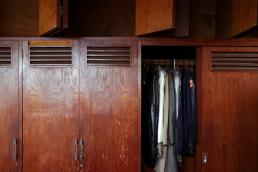
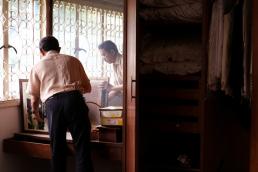
My late grandparents had owned this house since the 1970s. During the heydays of Malaysian development, Seksyen 16 was a strategic location (and remains to be until today), straddling between Petaling Jaya and Kuala Lumpur. The neighborhood, located behind Universiti Malaya, was home to countless civil servants. My late grandfather among them. Strategic location and a quiet neighborhood made this perfect place to stay.
In my childhood, I spent many a weekend in my grandparents’ living room, hearing the nation’s history from my grandfather who played a role in its development. The house was often stuffy, dark and felt old. My grandparents lived in history: portraits of public figures hanging on the walls, cassette tapes, and old government documents were part of the decoration. In my grandfather’s study, a library collection of international relations, cultural studies, and politics. He was among Malaysia’s leading ambassadors post-Independence and wore his profession even late into retirement.
Warm afternoons of historical conversations, Larry King’s CNN blaring on the television and family. My dad driving the family car up the mini-hill driveway that was the entrance of this home. And occasionally, my late grandmother gardening among her beloved paper-thin bougainvilleas.
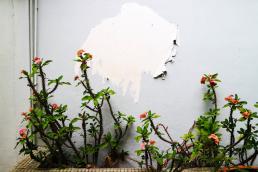
After my late grandparents passed away (a few days apart from each other), my family set to slowly sorting their belongings and the estate. There were so many questions I wanted to ask, but many of the answers, I learned through my surviving relatives, their friends, and my late grandfather’s documents. But even in those pieces of writing, it was difficult to decipher my grandfather: the ambassador and the kindly man who joked often about the smallest things.
The now-empty hallway leading up to their bedroom and the narrow walkways were once part of a childhood maze. Now, I felt too big for the hallway which was once, over a decade ago, housed books on Middle-East and Asian politics and history. Across the bookshelves would be framed holy verses. My late grandmother was a pious person and often made God a presence, even in the corners of the home.
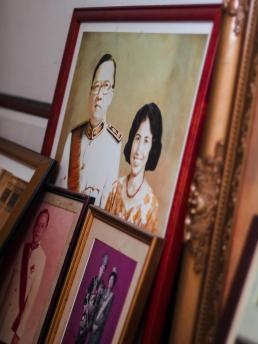
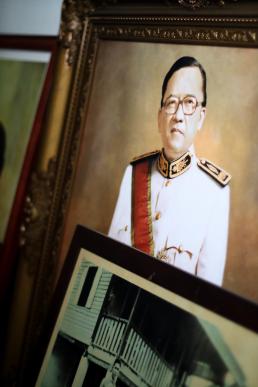
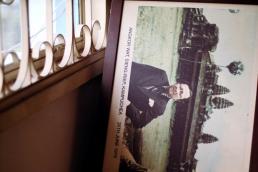
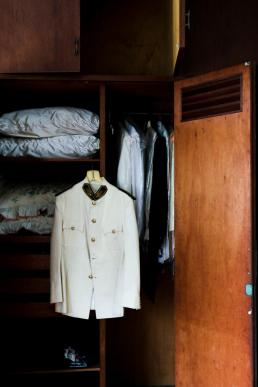
It has been almost a decade since they’ve passed away. But we kept the house still; a mausoleum of sentiment, with all the furniture, portraits and books intact. Inwardly, due to eventual neglect, it had fallen into decay. Dust had long settled on the armchair my grandmother used to spend the whole day sitting on while watching the world change through the glass screen. On Sunday afternoons when cooking was too much of a task, my uncle would drive out to the KFC around the neighborhood and bring back a bucket or two. KFC, to my grandmother, was one of modernity’s gifts – and she shared that with her grandchildren.
Now, the kitchen was empty, grimed, even. Cutleries and old China sets from around the world sat disused in the cupboards, many eventually packed neatly into boxes. Yes, this was what the house and its memories were left now: empty rooms, large boxes, and settling dust. I sneezed as I opened the cupboard in the rooms, looking for memorabilia worth keeping.
In all its bareness, the house, in the spirit of the constructionist 70s, was almost brutalist. It was a product of its era, built with a specific purpose despite the limitations of its time, both in concept and ideals.
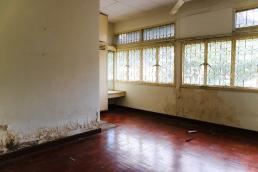
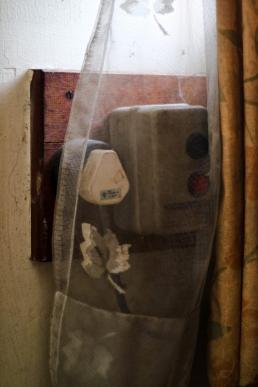
As I walk out of my late grandparents’ home with books in hand, my only lasting heirloom, I could not help but think of ancestorship. This home, the final resting place of my grandparents, would eventually be forgotten – its ownership in the hands of another who would have never known its history, memories, and emotions.
I write, so I may never forget.